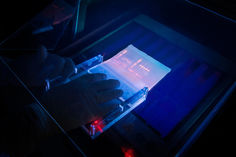- Sektion Nephrogenetik (AG Simons)
- Seniorprofessur Prof. Rappold
- Molekulare Neurogenetik (AG Berkel)
- Kardiogenetik (AG Hoffmann)
- Genomisches Neugeborenenscreening
- Translationale Neurowissenschaften (AG Althammer)
- Neurogastrogenetik (AG Mellein)
- Regulierung der Transkription bei Entwicklungsstörungen (AG Laugsch)
- Genetik neurologischer Entwicklungsstörungen (AG Schaaf)
- Mausmodelle für neurologische Entwicklungsstörungen (AG Fröhlich)
- Molekulare Humangenetik (AG Boutros)
- Forschung der genetischen Poliklinik
- Forschung in der Diagnostik
- Publikationen
File and Image Sharing of Medical Results
In the first step, we would like to ask you to send us a series of medical results/findings by e-mail. Please do not redact these documents. The documents will be stored separately. The depersonalized data will be reviewed by our staff and transferred to the study database. This ensures that the database contains only depersonalized (pseudonymized) data.
Please use the following checklist to select relevant medical reports for the registry and e-mail them to the registry team. If there are multiple reports, please send ALL reports.
1. ALL available genetic reports of the Dup15q patient (e.g., karyotype, CGH array, FISH, methylation testing, whole genome sequencing (WGS), exome sequencing)
2. Any genetic findings from the parents
3. Standardized developmental testing (e.g., Bayley, ET6-6, Vineland, Denver, Munich Functional)
4. IQ test
5. Autism diagnostics (e.g., ADOS, ADI-R, 3di, DISCO, FSK)
6. Growth charts (height, weight, head circumference)
7. Head MRI scan(s)
8. EEG scan(s)
9. Sleep study(s)
10. Endocrinological examination(s) (in case of early/delayed puberty)
11. Medication plan (current and previous)
12. Emergency epilepsy plan (in order of priority): Rescue medications given to interrupt an ongoing seizure or series of seizures
13. Other important findings
Important Documents
Consent Form
Study Information
Frequently Asked Questions
- Sektion Nephrogenetik (AG Simons)
- Seniorprofessur Prof. Rappold
- Molekulare Neurogenetik (AG Berkel)
- Kardiogenetik (AG Hoffmann)
- Genomisches Neugeborenenscreening
- Translationale Neurowissenschaften (AG Althammer)
- Neurogastrogenetik (AG Mellein)
- Regulierung der Transkription bei Entwicklungsstörungen (AG Laugsch)
- Genetik neurologischer Entwicklungsstörungen (AG Schaaf)
- Mausmodelle für neurologische Entwicklungsstörungen (AG Fröhlich)
- Molekulare Humangenetik (AG Boutros)
- Forschung der genetischen Poliklinik
- Forschung in der Diagnostik
- Publikationen




